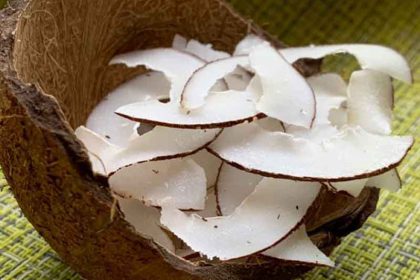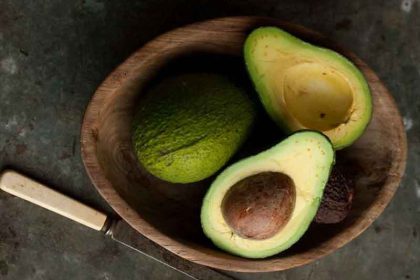Benefits of grapes for skin and kids and kidney and pregnancy
Benefits of grapes

Benefits of grapes for skin and kids and kidney and pregnancy on Nicholi site. We hope this article will be of interest to you.
This text is about the benefits of eating grapes, the potential side effects, and the different types of grapes and their names. Grapes are packed with antioxidants, promote heart health, boost the immune system, aid digestion, improve cognitive function, and may reduce the risk of cancer. However, they can cause allergic reactions, digestive issues, dental problems, and weight gain, and can interact with certain medications, among other side effects. The most common types of grapes include Concord, Thompson Seedless, Red Globe, Flame Seedless, Muscat, Chardonnay, Cabernet Sauvignon, Pinot Noir, Merlot, and Riesling. The text also explains the different types of grapes used to make wine, such as Cabernet Sauvignon, Merlot, Pinot Noir, Chardonnay, Sauvignon Blanc, and Zinfandel.
Benefits of grapes
Grapes, apart from being a delicious and convenient snack, offer numerous health benefits due to their high nutrient and antioxidant content. Here are some of the key benefits of incorporating grapes into your diet:
Nutrient-Rich: Grapes are rich in several important nutrients. They are a good source of vitamins C and K, which are important for immune function, skin health, and bone health. They also provide a decent amount of fiber, which is beneficial for digestive health.
High in Antioxidants: Grapes are packed with antioxidants, which help combat oxidative stress and inflammation in the body. These antioxidants include flavonoids, phenolic acids, and resveratrol. Resveratrol, in particular, is noted for its potential effects on heart health and longevity.
Heart Health: Consuming grapes may benefit heart health in multiple ways. Grapes have been shown to improve blood flow, lower blood pressure, reduce oxidative stress, and improve cholesterol levels, all of which can reduce the risk of heart disease.
Anti-inflammatory Properties: The antioxidants in grapes can help reduce inflammation in the body, which is a key factor in many chronic diseases. Chronic inflammation is linked to conditions such as heart disease, diabetes, and certain cancers.
Cancer Prevention: Some studies suggest that the compounds found in grapes, including resveratrol, may have anti-cancer properties. These compounds may inhibit the growth of cancer cells and induce apoptosis (cell death) in various types of cancer.
Eye Health: Grapes contain antioxidants like lutein and zeaxanthin, which are important for maintaining eye health. These compounds can help protect against damage from blue light and reduce the risk of age-related macular degeneration.
Improved Brain Function: The resveratrol in grapes has been shown to improve brain function and delay the onset of neurodegenerative diseases. It may improve memory, cognitive function, and mood, and reduce the risk of Alzheimer’s disease.
Diabetes Management: While grapes are sweet, they have a relatively low glycemic index (GI), which means they have a less significant effect on blood sugar levels. Some studies suggest that resveratrol can improve insulin sensitivity, which can help manage diabetes.
Weight Management: Grapes are low in calories and high in water content, making them a good snack for weight management. They can provide a feeling of fullness and reduce the overall calorie intake when consumed as part of a balanced diet.
Bone Health: Grapes contain nutrients that are beneficial for bone health, including vitamin K, calcium, magnesium, and potassium. These nutrients are essential for bone strength and density.
Side effects of grapes
While grapes are generally safe and healthy for most people when consumed in moderation, there can be some potential side effects or situations where caution might be advised:
Allergies: Although rare, some individuals may be allergic to grapes. Symptoms of a grape allergy can include hives, itching, swelling, and in severe cases, anaphylaxis, which is a potentially life-threatening reaction.
High Sugar Content: Grapes, especially sweet varieties, are relatively high in natural sugars, which can be a concern for people with diabetes or those trying to manage their blood sugar levels. Consuming grapes in large quantities may lead to spikes in blood sugar.
Weight Gain: Due to their sugar content, excessive consumption of grapes could contribute to weight gain, especially if consumed as part of a diet that exceeds one’s energy requirements.
Digestive Problems: Although the fiber in grapes is beneficial for digestion, eating too many grapes can lead to digestive issues for some people, including bloating, gas, and diarrhea, due to their fructose and fiber content.
Interactions with Medications: Grapes, particularly grapefruit and grapefruit juice, can interact with certain medications, altering their effectiveness. This is due to compounds in grapes that can interfere with enzymes that metabolize drugs in the body. While this is more commonly associated with grapefruit, it’s worth being cautious with all types of grapes if you’re taking medications.
Pesticide Residue: Grapes may contain pesticide residues if not washed properly or if not sourced from organic farming. Consuming organic grapes or thoroughly washing them can help reduce the exposure to these chemicals.
Toxicity in Dogs: Grapes and raisins (dried grapes) are toxic to dogs and can cause acute kidney failure in susceptible individuals. Even small amounts can be very harmful, so it’s important to keep grapes out of reach of pets.
Choking Hazard: For young children, whole grapes pose a choking hazard. It’s recommended to cut grapes into smaller pieces when serving them to young kids.
Types of grapes and their names
There are many different types of grapes, each with its own unique characteristics and uses. Here are some of the most common types of grapes and their names:
Concord: This is a popular grape variety in North America that is often used to make grape juice and jelly.
Thompson Seedless: Also known as Sultana, this is a seedless grape variety that is often used for making raisins.
Red Globe: This is a large, red grape variety that is often used for eating fresh or making wine.
Flame Seedless: This is a seedless grape variety that is known for its bright red color and sweet flavor.
Muscat: This is a sweet grape variety that is often used for making wine and raisins.
Chardonnay: This is a white grape variety that is used to make one of the most popular types of white wine.
Cabernet Sauvignon: This is a red grape variety that is used to make one of the most popular types of red wine.
Pinot Noir: This is a red grape variety that is used to make light-bodied, flavorful red wines.
Merlot: This is a red grape variety that is often used to make smooth, full-bodied red wines.
Riesling: This is a white grape variety that is often used to make sweet or semi-sweet wines.
Types of grapes for wine
There are many different grape varieties that are used for making wine, and each variety can produce a different style of wine. Here are some of the most common grape varieties for making wine:
Cabernet Sauvignon: This is a red grape variety that is one of the most widely recognized and highly prized varieties in the world. It is used to make full-bodied, tannic red wines with flavors of black currant, cedar, and spice.
Merlot: This is another red grape variety that is known for producing soft, velvety wines with flavors of black cherry, plum, and chocolate. It is often blended with other red grape varieties to create complex, layered wines.
Pinot Noir: This is a red grape variety that is known for producing elegant, light-bodied wines with flavors of raspberry, cherry, and mushroom. It can be difficult to grow and produce but is highly prized by wine lovers.
Chardonnay: This is a white grape variety that is used to make some of the most popular white wines in the world. It is known for producing wines with flavors of apple, pear, and vanilla, and can be made in a variety of styles, from light and crisp to rich and full-bodied.
Sauvignon Blanc: This is another popular white grape variety that is known for producing wines with bright acidity and flavors of citrus, grass, and herbs. It is often used to make crisp, refreshing wines that are perfect for summer.
Syrah/Shiraz: This is a red grape variety that is known for producing rich, full-bodied wines with flavors of blackberry, spice, and smoke. It is often blended with other grape varieties to create complex, flavorful wines.
Zinfandel: This is a red grape variety that is known for producing bold, spicy wines with flavors of blackberry, pepper, and tobacco. It is often used to make fruity, jammy wines that are popular in California.
Malbec: This is a red grape variety that is known for producing wines with flavors of black cherry, plum, and chocolate. It is often used in blends, but is also popular on its own, particularly in Argentina.
Tempranillo: This is a red grape variety that is the primary grape used in Spain’s famous Rioja wines. It produces wines with flavors of red fruit, leather, and spice, and can be aged for long periods of time.
Pinot Grigio/Gris: This is a white grape variety that is known for producing light, crisp wines with flavors of citrus and green apple. It is often used to make easy-drinking, refreshing wines that are perfect for warm weather.
Grape varieties a-z
Here is a list of grape varieties from A to Z:
A – Albariño, Aglianico, Arneis, Assyrtiko, Alicante Bouschet
B – Barbera, Blaufränkisch, Cabernet Sauvignon, Chardonnay, Chenin Blanc
C – Carmenere, Catarratto, Cinsault, Corvina, Cabernet Franc
D – Dolcetto, Durif, Dornfelder
E – Ehrenfelser
F – Falanghina, Fiano, Friulano, Furmint
G – Gamay, Gewürztraminer, Godello, Graciano, Grenache, Grüner Veltliner
H – Hárslevelü
I – Inzolia
J – Jacquère, Jurançon
K – Kerner
L – Lambrusco, Malbec, Merlot, Mourvèdre, Muscat
M – Marsanne, Mavrud, Montepulciano, Müller-Thurgau
N – Nebbiolo, Negrette, Nero d’Avola, Norton
O – Ortega
P – Pinot Noir, Petit Verdot, Petit Manseng, Primitivo, Pinot Grigio/Pinot Gris
Q – (none)
R – Riesling, Roussanne, Ruby Cabernet
S – Sauvignon Blanc, Sangiovese, Sémillon, Syrah/Shiraz, Sylvaner
T – Tempranillo, Touriga Nacional, Traminer
U – Ugni Blanc
V – Verdejo, Vermentino, Vernaccia, Viognier
W – Welschriesling
X – (none)
Y – (none)
Z – Zinfandel
Please note that this list is not exhaustive and there are many other grape varieties in the world.
Benefits of grapes for kids
Grapes offer numerous health benefits for kids, making them a great addition to a balanced diet. Their sweet taste and small, easy-to-eat size also make them a popular fruit choice among children. Here are some key benefits of grapes for kids:
Nutritious Snack: Grapes are rich in essential vitamins and minerals that are important for children’s growth and development. They provide vitamins C and K, which are important for the immune system, skin health, and bone strength. Grapes also contain antioxidants that protect the body’s cells from damage.
Hydration: Grapes have a high water content, which helps keep children hydrated, especially during hot weather or after physical activities. Proper hydration is crucial for maintaining good health and ensuring that all bodily functions operate effectively.
Digestive Health: The fiber in grapes can aid digestion and help prevent constipation, a common issue in children. A healthy digestive system is important for the absorption of nutrients and overall well-being.
Healthy Snacking: Grapes can be a healthy alternative to processed snacks that are often high in sugar, salt, and unhealthy fats. They can satisfy a sweet tooth without the added sugars and calories, contributing to a healthy weight and reducing the risk of obesity.
Immune Support: The vitamin C in grapes supports the immune system, helping children fight off infections and illnesses. Maintaining a strong immune system is particularly important for kids, who may be more susceptible to colds and other infections.
Eye Health: The antioxidants in grapes, including lutein and zeaxanthin, are beneficial for eye health. These compounds can help protect children’s eyes from harmful blue light and may contribute to long-term eye health.
Brain Development: Some studies suggest that the resveratrol found in grapes may have neuroprotective effects, which could contribute to brain health and development. While more research is needed, consuming foods rich in antioxidants can be beneficial for cognitive development.
Heart Health: Incorporating heart-healthy foods like grapes into a child’s diet from an early age can help establish healthy eating habits that contribute to cardiovascular health in the long term.
Bone Health: Grapes contain nutrients like vitamin K, calcium, and magnesium, which are important for developing strong, healthy bones in children.
Convenient and Versatile: Grapes are easy to pack for snacks on the go, can be added to various dishes, and don’t require peeling or slicing, making them a convenient fruit option for kids.
Benefits of grapes for kidney
Grapes, especially their skins, are rich in antioxidants and possess anti-inflammatory properties that can offer various benefits for kidney health:
Antioxidant Protection: Grapes are high in antioxidants, such as resveratrol, flavonoids, and vitamin C, which help protect the body from oxidative stress and inflammation. Oxidative stress is a factor in many chronic diseases, including kidney disease. By reducing oxidative stress, grapes may help protect the kidneys from damage.
Anti-inflammatory Effects: Chronic inflammation can contribute to the progression of kidney disease. The anti-inflammatory compounds found in grapes can help reduce inflammation in the body, potentially benefiting kidney health.
Blood Pressure Regulation: High blood pressure is a common risk factor for kidney disease. Grapes, particularly due to their potassium content and antioxidant properties, may help in managing blood pressure levels. Maintaining healthy blood pressure is crucial for kidney health, as high blood pressure can damage the kidneys over time.
Improved Kidney Function: Some studies suggest that resveratrol, an antioxidant found in grape skins, may improve kidney function by reducing oxidative stress and inflammation in the kidneys. This could potentially slow the progression of kidney disease, although more research is needed to fully understand these effects.
Reduction of Kidney Stone Risk: Consuming foods that are high in antioxidants and maintaining adequate hydration can help reduce the risk of kidney stones. Grapes, which are high in water content and antioxidants, may contribute to this protective effect by helping to prevent the formation of crystals in the kidneys.
Benefits of grapes for pregnancy
Grapes can be a nutritious addition to the diet during pregnancy, offering various health benefits due to their high nutrient and antioxidant content. However, it’s important to consume them in moderation and as part of a balanced diet. Here are some benefits of grapes during pregnancy:
Rich in Vitamins and Minerals: Grapes are a good source of vitamins C and K, which are important for both the mother and the developing fetus. Vitamin C supports the immune system and is necessary for the growth and repair of tissues, while vitamin K is essential for blood clotting and bone formation.
Antioxidant Properties: Grapes contain antioxidants such as resveratrol, flavonoids, and vitamin C, which help protect the body against oxidative stress and inflammation. These antioxidants can contribute to the overall health of the mother and support fetal development.
Hydration: Due to their high water content, grapes can help keep pregnant women well-hydrated. Proper hydration is crucial during pregnancy for maintaining adequate blood volume and supporting the transport of nutrients and oxygen to the fetus.
Digestive Health: The fiber in grapes can aid digestion and help prevent constipation, a common issue during pregnancy. Maintaining a healthy digestive system can enhance nutrient absorption and comfort.
Energy Boost: Grapes are a source of natural sugars and carbohydrates, providing a quick energy boost. This can be particularly helpful during pregnancy when energy levels may fluctuate.
Heart Health: The resveratrol and other compounds in grapes may improve heart health by enhancing blood flow and reducing inflammation. Maintaining cardiovascular health is important during pregnancy due to increased blood volume and the extra workload on the heart.
Prevention of Swelling: Grapes have a natural diuretic effect and contain potassium, which can help balance fluid levels in the body and reduce swelling (edema) in the hands and feet, a common symptom in late pregnancy.
While grapes offer these benefits, there are some considerations and potential concerns to be aware of:
Pesticide Exposure: Grapes can have high levels of pesticide residues if not washed properly or if they’re not organic. It’s important to wash them thoroughly or choose organic grapes to reduce exposure to these chemicals.
Allergy or Sensitivity: Some women may find they have sensitivities or allergies to certain foods during pregnancy, including grapes. If you experience any adverse reactions, it’s best to avoid them.
Risk of Gestational Diabetes: Due to their natural sugar content, pregnant women with or at risk of gestational diabetes should monitor their grape intake and consult with a healthcare provider to ensure their diet is balanced and healthy.
Incorporating a variety of fruits and vegetables, including grapes, into a balanced diet can contribute to a healthy pregnancy. However, it’s always a good idea to consult with a healthcare provider or a dietitian to tailor dietary recommendations to your specific needs during pregnancy.
Black grapes
Black grapes are a type of grape that is dark purple or black in color. They are a rich source of vitamins, minerals, and antioxidants, making them a nutritious addition to a healthy diet. Black grapes are often used to make wine, but they can also be eaten fresh or used in cooking and baking. Black grapes contain a variety of beneficial nutrients, including vitamin C, vitamin K, potassium, and fiber. They are also high in antioxidants, which can help protect against cell damage and reduce the risk of chronic diseases such as heart disease, cancer, and diabetes.
When selecting black grapes, look for ones that are firm and plump with no signs of wrinkles or soft spots. They should also have a deep, even color and be free from mold or other signs of spoilage. Overall, black grapes are a delicious and nutritious fruit that can be enjoyed in many different ways. Whether eaten on their own, used in recipes, or enjoyed as part of a glass of wine, they are a great addition to a healthy and balanced diet.
What are big grapes called?
The term “big grapes” can refer to a few different varieties of grapes that are known for their larger size. One such variety is the “Concord” grape, which is a type of purple grape that is commonly used to make grape juice, jelly, and other grape products. Another variety is the “Muscadine” grape, which is a type of grape native to the southeastern United States that is known for its large size and thick skin. There are also other grape varieties that are known for their larger size, such as “Red Globe” grapes, which are a type of red grape that can grow to be quite large. Ultimately, the size of grapes can vary depending on the specific variety and growing conditions, so there is no one specific name for all large grapes.
Moon drop grapes
Moon Drop grapes are a unique and distinct variety of table grapes, known for their elongated, tubular shape and sweet flavor. They are a product of careful plant breeding and selection, developed by The Grapery, a company based in California, which is known for producing unusual and innovative grape varieties. Here are some key features and facts about Moon Drop grapes:
Appearance: The most striking feature of Moon Drop grapes is their shape, which is elongated and resembles a small, elongated balloon or a drop. They are dark purple to black in color, making them visually distinctive compared to more common grape varieties.
Taste and Texture: Moon Drop grapes have a sweet, mildly tangy flavor with a firm and crunchy texture. Their skin is relatively thin, and the flesh inside is juicy, providing a pleasant eating experience.
Seasonality: Like many specialty grape varieties, Moon Drop grapes have a specific harvest season, typically available from late summer through the fall. This limited availability can make them a sought-after treat during their season.
Nutritional Value: Moon Drop grapes share similar nutritional benefits with other grape varieties, being low in calories and a good source of vitamins C and K, antioxidants, and dietary fiber.
Uses: Due to their unique shape and sweet flavor, Moon Drop grapes are primarily enjoyed fresh as a snack. They can also be an interesting addition to fruit salads, cheese platters, or as a decorative element in various dishes.
Non-GMO: Despite their unusual appearance, Moon Drop grapes are developed through natural plant breeding techniques and are not genetically modified organisms (GMOs).
Availability: Moon Drop grapes are primarily grown in California and may be found in supermarkets and specialty stores across the United States and possibly in other countries, particularly during their growing season.
Cotton candy grapes
Cotton candy grapes are a type of grape that has been selectively bred to have a unique flavor that is said to resemble cotton candy. These grapes are typically larger and rounder than traditional grapes and have a pale green color. The flavor of cotton candy grapes is often described as being very sweet with a hint of vanilla or caramel. Some people also detect a slight hint of strawberry or cherry in the flavor. Cotton candy grapes were developed by a fruit breeder named David Cain in California in the early 2000s. The grapes were created by crossbreeding different varieties of grapes in order to create a new variety with a unique flavor. Today, cotton candy grapes are sold in grocery stores and markets throughout the United States and other countries. They are typically only available during the late summer and early fall months, as that is when they are in season.
Benefits of eating grapes at night
While there are many health benefits to eating grapes, there is no evidence to suggest that eating grapes at night provides any specific benefits. However, eating grapes as part of a healthy and balanced diet can still provide many health benefits, regardless of the time of day they are consumed. Grapes are a good source of vitamins, minerals, and fiber, which can help to support overall health and well-being. They are also low in calories and high in water content, which can help to keep you feeling full and hydrated. Grapes are naturally sweet and can provide a healthy alternative to sugary snacks. However, it is important to note that eating a large number of grapes before bedtime can also lead to discomfort or digestive issues, such as acid reflux or bloating, in some people. Therefore, it is recommended to consume grapes in moderation and not too close to bedtime if you experience any of these issues.
Green and red grapes benefit for skin
Green grapes are packed with nutrients that are beneficial for the skin. Some of the benefits of green grapes for the skin are:
Anti-aging benefits: Green and red grapes are a rich source of antioxidants, such as vitamin C and resveratrol, which can help reduce the signs of aging, including fine lines; wrinkles, and age spots.
Skin hydration: Green and red grapes are also a good source of water, which can help hydrate the skin and keep it looking plump and healthy.
Brightening effect: The vitamin C content in green and red grapes can also help brighten the skin, reduce dark spots, and promote a more even skin tone.
Sun protection: The antioxidants in green and red grapes can help protect the skin from sun damage, which can lead to premature aging and skin cancer.
Anti-inflammatory benefits: Green and red grapes contain anti-inflammatory compounds that can help reduce inflammation in the skin and soothe irritation.
To reap the skin benefits of green grapes, you can consume them as part of a healthy diet or use grape-based skincare products, such as grape seed oil or grape juice masks.
Grapes vitamins
Grapes are a rich source of several vitamins, including:
Vitamin C: Grapes are a good source of vitamin C, an antioxidant that helps protect cells from damage, supports the immune system, and aids in the production of collagen.
Vitamin K: Grapes also contain vitamin K, which plays a role in blood clotting and bone health.
Vitamin B6: Grapes are a good source of vitamin B6, which is important for brain development and function, as well as for the production of red blood cells.
Vitamin A: Grapes contain small amounts of vitamin A, which is important for eye health and immune function.
Folate: Grapes are also a good source of folate, a B vitamin that helps the body make new cells and supports DNA synthesis.
In addition to these vitamins, grapes also contain a range of other beneficial compounds, including antioxidants, fiber, and minerals like potassium and manganese.
Side effects of eating grapes at night
Eating grapes at night is generally considered safe and does not have any serious side effects. However, some people may experience discomfort or digestive issues if they consume grapes or any other fruit too close to bedtime, especially if they have a sensitive digestive system. Eating large amounts of grapes, particularly those with seeds, may also lead to choking or gastrointestinal blockage, particularly in young children or people with swallowing difficulties.
Additionally, grapes are high in natural sugar and carbohydrates, so consuming a large number of grapes before bedtime may cause a spike in blood sugar levels, which can disrupt sleep and lead to insomnia. Overall, moderate consumption of grapes, ideally as part of a balanced diet, is unlikely to cause any negative side effects. However, if you have any concerns or experience discomfort after eating grapes at night, it is best to consult with your doctor’s provider.
Red grapes nutrition facts 100g
Here are the approximate nutrition facts for 100g of raw red grapes:
Calories: 69
Protein: 0.7 g
Carbohydrates: 18.1 g
Fiber: 0.9 g
Sugar: 15.5 g
Fat: 0.2 g
Vitamin C: 3% of the Daily Value (DV)
Vitamin K: 14% of the DV
Thiamin: 2% of the DV
Riboflavin: 2% of the DV
Niacin: 1% of the DV
Vitamin B6: 4% of the DV
Folate: 1% of the DV
Calcium: 1% of the DV
Iron: 2% of the DV
Magnesium: 2% of the DV
Phosphorus: 2% of the DV
Potassium: 5% of the DV
Zinc: 1% of the DV
It is important to note that the exact nutrient content of red grapes may vary slightly depending on factors such as growing conditions, ripeness, and storage.
Are grapes good for dogs?
Grapes and raisins can be toxic to dogs and can cause serious health problems such as kidney failure. The exact substance in grapes and raisins that causes toxicity is still unknown, and the severity of symptoms can vary from dog to dog. Symptoms of grape or raisin toxicity may include vomiting, diarrhea, lethargy, loss of appetite, and decreased urine output. Therefore, it is generally recommended to avoid feeding grapes or raisins to dogs as a precautionary measure. If you suspect that your dog has consumed grapes or raisins or is exhibiting symptoms of toxicity, you should contact your veterinarian immediately.
How many grapes should you eat a day?
The recommended daily intake of grapes varies depending on factors such as age, sex, and overall health. However, the American Heart Association recommends consuming at least 4-5 servings of fruits per day, including grapes, as part of a healthy diet. A typical serving size of grapes is about 1 cup or 150 grams, which contains approximately 100 calories. Based on this, it is generally safe to consume 1-2 cups of grapes per day, which equates to about 30-60 grapes. It is important to note that grapes, like other fruits, are high in natural sugars and calories, so it is best to consume them in moderation as part of a balanced diet.
Grape seed extract for female fertility
There is some evidence to suggest that grape seed extract may have benefits for female fertility. The grape seed extract is a rich source of antioxidants, which can help to protect the body’s cells from damage caused by free radicals. In a study published in the Journal of Reproductive Medicine in 2011, researchers investigated the effects of grape seed extract on women with polycystic ovary syndrome (PCOS), a condition that can affect fertility. The study found that taking grape seed extract for 3 months improved insulin resistance, hormonal imbalances, and oxidative stress, which are all common issues associated with PCOS.
Another study published in the Journal of Women’s Health in 2016 found that taking grape seed extract for 6 months improved measures of ovarian function, including an increase in the number of mature follicles and better egg quality, in women undergoing in vitro fertilization (IVF). While these studies suggest that grape seed extract may have benefits for female fertility, more research is needed to confirm these findings and determine the optimal dosage and duration of treatment. It is also important to note that grape seed extract may interact with certain medications and may not be safe for everyone. As with any supplement, it is recommended to consult with a healthcare professional before taking grape seed extract for fertility or any other purpose.
Green grapes benefit for fertility
While there is no direct evidence to suggest that green grapes specifically have benefits for fertility, all types of grapes are a good source of nutrients and antioxidants that can support overall health, including reproductive health. Green grapes, like other grapes, are rich in vitamins and minerals such as vitamin C, vitamin K, and potassium, which are important for maintaining a healthy reproductive system. They are also a good source of antioxidants such as resveratrol, which has been shown to have anti-inflammatory and anti-aging properties. Maintaining a healthy diet that includes a variety of fruits and vegetables, including green grapes, can help to support overall health and potentially improve fertility. However, it is important to note that there is no single food or supplement that can guarantee improved fertility, and other factors such as age, underlying medical conditions, and lifestyle habits can also affect fertility.
Grape seed extract benefits male fertility
There is some evidence to suggest that grape seed extract may have benefits for male fertility. In a study published in the Journal of Medicinal Food in 2013, researchers investigated the effects of grape seed extract on men with infertility. The study found that taking grape seed extract for 3 months improved sperm motility and morphology, as well as reduced oxidative stress and DNA damage in sperm. Another study published in the Journal of Nutrition and Intermediary Metabolism in 2019 found that taking grape seed extract for 3 months improved measures of semen quality, including an increase in sperm count, motility, and normal morphology, in men with idiopathic infertility.
While these studies suggest that grape seed extract may have benefits for male fertility, more research is needed to confirm these findings and determine the optimal dosage and duration of treatment. It is also important to note that grape seed extract may interact with certain medications and may not be safe for everyone. As with any supplement, it is recommended to consult with a healthcare professional before taking grape seed extract for fertility or any other purpose.
Eating grapes at night for weight loss
There is no scientific evidence to suggest that eating grapes at night specifically promotes weight loss. However, grapes can be a healthy snack option for those trying to maintain a healthy weight. Grapes are low in calories and high in fiber, which can help you feel full and satisfied without consuming too many calories. They are also a good source of vitamins and minerals, including vitamin C, vitamin K, and potassium.
That being said, it is important to remember that weight loss is ultimately determined by the total number of calories consumed versus the number of calories burned through physical activity and daily living. Eating too many calories from any source, including grapes, can contribute to weight gain. If you are trying to lose weight, it is important to focus on eating a balanced diet that is rich in fruits, vegetables, whole grains, and lean protein sources, and to engage in regular physical activity. It is also recommended to avoid eating large meals or snacks close to bedtime, as this can interfere with sleep quality and may contribute to weight gain.
Green grapes benefits for hair
Promotes Hair Growth: The vitamins C and E found in green grapes help to strengthen hair follicles and promote hair growth.
Moisturizes Hair: Green grapes are also rich in water content, which can help to moisturize the hair and prevent dryness.
Prevents Hair Loss: The antioxidants and vitamin E in green grapes help to prevent hair loss by protecting the hair from damage and strengthening the hair follicles.
Improves Scalp Health: The vitamin C in green grapes helps to improve scalp health by increasing blood circulation to the scalp and promoting the growth of healthy hair.
Overall, incorporating green grapes into your diet can provide numerous benefits for your hair health, but it’s important to remember that a balanced and varied diet is key for overall health and wellness.
Green grapes benefit for weight loss
Green grapes can be a great addition to a weight-loss diet for several reasons: Green grapes are low in calories, which makes them a great snack option for those trying to lose weight. One cup of green grapes contains about 60-70 calories, depending on the size of the grapes. Green grapes are high in fiber, which can help you feel full and satisfied for longer periods of time. This can prevent overeating and help you consume fewer calories overall. Green grapes are low in fat, making them a healthy snack option that won’t contribute to weight gain. Green grapes contain resveratrol, which has been found to have potential weight loss benefits by reducing fat accumulation and increasing energy expenditure. It’s important to note that while green grapes can be a healthy addition to a weight loss diet, they should be consumed in moderation as part of a balanced and varied diet. Additionally, weight loss ultimately comes down to creating a calorie deficit, so it’s important to monitor overall calorie intake and engage in regular physical activity to achieve weight loss goals.
Green grapes benefits for face
Green grapes can offer several benefits for the skin, particularly when used as part of your facial care routine. Rich in antioxidants, vitamins, and hydrating properties, they can contribute to healthier, more radiant skin. Here are some of the benefits of using green grapes for facial care:
Hydration: Green grapes have a high water content, which can help hydrate the skin when applied topically. Hydrated skin appears plumper, healthier, and has a natural glow.
Antioxidant Protection: Green grapes are rich in antioxidants such as vitamin C, vitamin E, and resveratrol. These compounds can help protect the skin from damage caused by free radicals and environmental stressors like pollution and UV radiation, potentially preventing premature aging.
Anti-inflammatory Properties: The natural compounds in green grapes have anti-inflammatory effects, which can help reduce redness, irritation, and inflammation on the skin. This can be particularly beneficial for conditions like acne or rosacea.
Skin Brightening: The vitamin C in green grapes can have a brightening effect on the skin, helping to reduce the appearance of dark spots and even out the skin tone.
Exfoliation: When crushed, green grapes can act as a gentle exfoliant, helping to remove dead skin cells and promote cell renewal for a fresher, brighter complexion.
Collagen Production: Vitamin C is also crucial for collagen synthesis, which is vital for skin elasticity and firmness. Regular use of green grape-based products or treatments can support skin’s natural collagen production, potentially reducing the appearance of fine lines and wrinkles.
Oil Control: For those with oily skin, green grapes can help regulate oil production due to their astringent properties, leading to fewer breakouts and a less greasy appearance.
Green grapes benefits for skin whitening
Green grapes can contribute to a brighter, more even skin tone due to their content of vitamins and antioxidants. While the term “skin whitening” is often used, it’s important to note that the goal should be to promote skin health and even out skin tone rather than to change the natural skin color. Here are some ways in which green grapes may benefit the skin in this context:
Vitamin C: Green grapes are a source of vitamin C, a potent antioxidant known for its role in skin brightening. Vitamin C can help inhibit melanin production, which in turn can reduce the appearance of dark spots and hyperpigmentation, leading to a more even skin tone.
Antioxidant Effects: Apart from vitamin C, green grapes contain other antioxidants like flavonoids and resveratrol. These antioxidants can protect the skin from damage caused by UV radiation and free radicals, which can contribute to skin darkening and aging.
Mild Exfoliation: The natural fruit acids in green grapes, such as malic acid, can act as gentle exfoliants. Regular exfoliation can help remove dead skin cells and promote the regeneration of new, healthy skin cells, contributing to a brighter complexion.
Anti-inflammatory Properties: The anti-inflammatory properties of green grapes can help reduce redness and inflammation, leading to a more even skin tone. This can be particularly beneficial for individuals with acne, rosacea, or other inflammatory skin conditions.
Hydration: Proper hydration is essential for maintaining a healthy skin barrier and preventing dullness. The high water content in green grapes can provide hydration to the skin, giving it a plump, radiant appearance.
To use green grapes for their skin-brightening benefits, you might consider incorporating them into your skincare routine in the following ways:
Grape Mask: Mash green grapes to form a paste and apply it directly to your face, leaving it on for 10-15 minutes before rinsing off. This can provide direct antioxidant benefits and mild exfoliation.
Grape Juice Toner: Use fresh green grape juice as a toner by applying it to the skin with a cotton pad. This can help cleanse and brighten the skin.
It’s important to remember that natural remedies can vary in effectiveness from person to person, and results may not be immediate. Consistency and patience are key. Additionally, always perform a patch test to ensure you do not have an adverse reaction to new treatments. For specific concerns or persistent skin issues, consulting a dermatologist is recommended.
Do grapes cause belly fat?
Eating grapes alone cannot cause belly fat. However, if you consume a larger amount of grapes or any other fruit that is high in sugar and your energy consumption throughout the day is less than your consumption, it can lead to weight gain and consequently, an increase in belly fat. Therefore, the key point is that to reduce belly fat, you need to reduce your overall calorie intake and use a healthy and appropriate combination of foods for your diet. As a high-nutrient fruit, grapes contain a significant amount of vitamins and nutrients and can be consumed as part of a healthy and varied diet.
Can eating too many grapes cause diabetes
Eating too many grapes alone is unlikely to cause diabetes. However, excessive consumption of any food, including grapes, can contribute to weight gain and increase the risk of developing type 2 diabetes. Type 2 diabetes is a metabolic disorder characterized by high blood sugar levels due to the body’s inability to effectively use insulin, a hormone that helps regulate blood sugar. The risk factors for type 2 diabetes include obesity, a sedentary lifestyle, genetics, and poor diet.
While grapes are a good source of antioxidants, vitamins, and minerals, they also contain natural sugars, such as fructose and glucose. Consuming large amounts of grapes or grape juice can cause a rapid increase in blood sugar levels, especially in individuals who are already at risk of developing diabetes. Therefore, it is important to consume grapes in moderation as part of a healthy and balanced diet, along with other fruits, vegetables, whole grains, lean proteins, and healthy fats. Additionally, maintaining a healthy weight, exercising regularly, and monitoring blood sugar levels can help reduce the risk of developing type 2 diabetes.



















If you desire to improve your knowledge only keep visiting this web site and be updated with the most recent news update posted here.
tank you
Hi there everyone, it’s my first visit at this site, and post is truly fruitful for me, keep up posting these articles.
Thank you. Your comments are very valuable to us, and help us to continue better
Hurrah, that’s what I was seeking for, what a stuff! present here at thisweblog, thanks admin of this site.
thank you. We are glad that the article was useful for you. Your opinion is valuable to us.
Spot on with this write-up, I absolutely believe thisamazing site needs far more attention. I’ll probablybe back again to read through more, thanks for the info!
Thank you for your energizing message. Your companionship is valuable to us.
Gems form the internet[…]very few websites that happen to be detailed below, from our point of view are undoubtedly well worth checking out[…]…
please send complete listee.
Generally I don’t read article on blogs, however I wish to say that this write-upvery pressured me to try and do so! Your writing style has been amazed me.Thank you, quite great post.
Thank you for your energizing message. Your companionship is valuable to us.
Im grateful for the article.Really thank you!
We are glad that this article was useful for you. Your companionship is valuable to us. Please introduce us to your friends.
Excellent read, I just passed this onto a colleague who was doing a little research on that. And he just bought me lunch as I found it for him smile Therefore let me rephrase that: Thanks for lunch! “It is impossible to underrate human intelligence–beginning with one’s own.” by Henry Adams.
We are glad that this text was helpful for you.
Tremendous things here. I am very happy to see your article.Thank you a lot and I am taking a look forward totouch you. Will you please drop me a mail?
Glad you liked it!
I’m amazed, I have to admit. Rarely do I come across a blogthat’s equally educative and entertaining, and let me tell you,you’ve hit the nail on the head. The problem is something not enough folks are speaking intelligently about.Now i’m very happy I stumbled across this in my hunt for something regarding this.
I’m glad you found it useful! Thank you for the kind words.